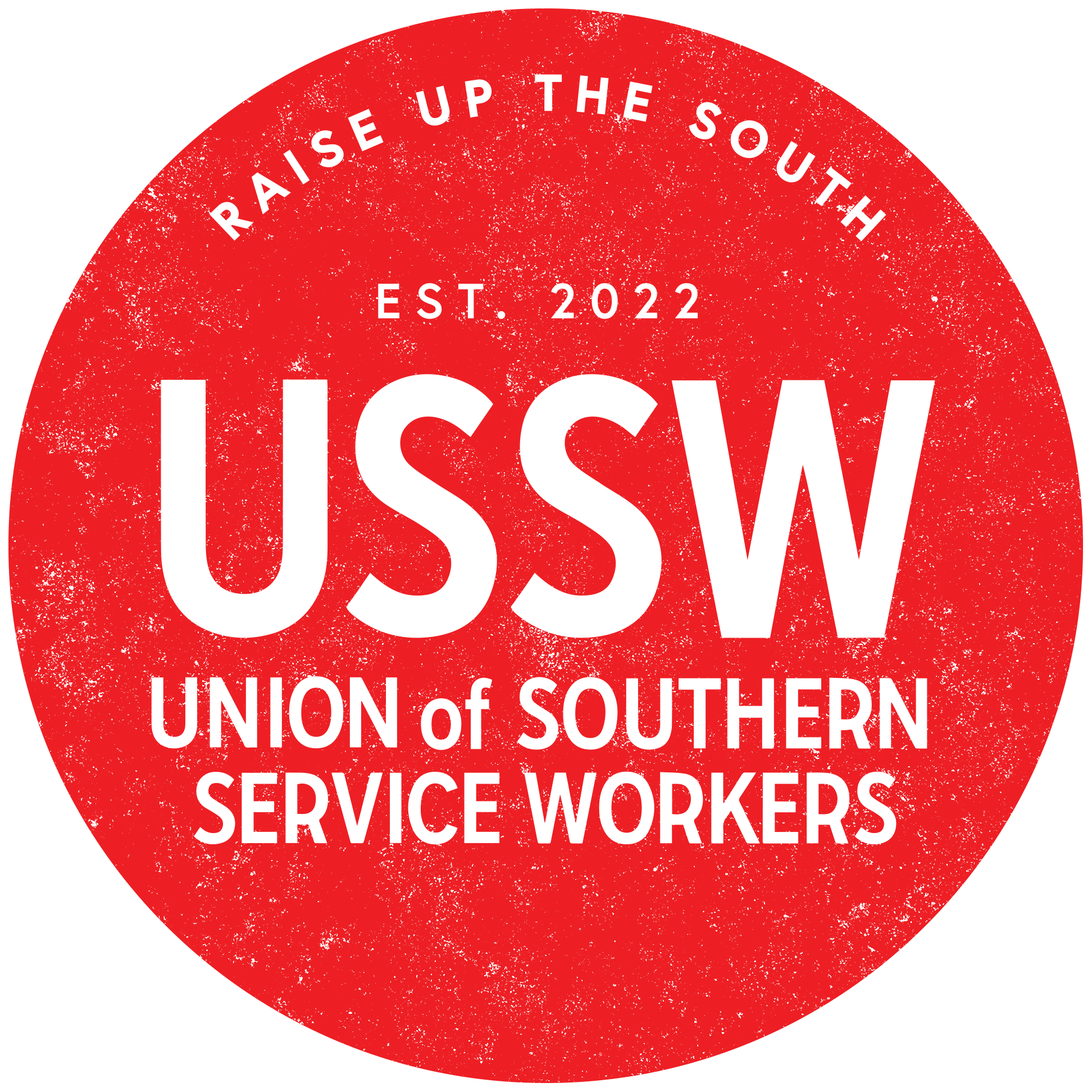FAQs
Union of Southern Service Workers (USSW) is a union being built by low-wage workers — the same workers who have been organizing for years under the banner of Raise Up & Fight for $15 and a Union.
-
The Union of Southern Service Workers (USSW) is a union being built by low wage workers — the same workers who have been organizing for the last decade under the banner of Raise Up, the Southern branch of Fight for $15 and a Union.
USSW is a worker organization that includes all low wage service workers in industries like fast food, care, and retail. We are building our union along these lines because this is the most effective way to express our power.
USSW is organizing across the service industry to win our shared demands by putting pressure directly on employers. We are organizing to shift the balance of power between workers and corporations. Together, we are fighting to transform the service industry’s low wage, high turnover jobs into good union jobs.
-
A union is an organization of workers coming together, using our strength in numbers to win changes together that we could not win on our own. Period.
We have to define what a union is for ourselves, not let those in power do it for us. We must build the kind of union that reflects our everyday reality and our needs, even if big corporations and politicians don’t want to recognize it at first. And if the rules that govern union organizing don’t work for millions of workers, we must demand a new set of rules.
-
Union of Southern Service Workers was formed by workers from across the service industry, from North Carolina, South Carolina, Georgia, and Alabama. Our membership includes fast food, restaurant, retail and care workers. USSW members are part of SEIU.
-
The problems that we face aren’t isolated to one employer so we can’t just focus on one employer. We need a union that reflects that reality. We are building a cross-sector union because this is the most direct path for building our collective power as workers.
Low wage service sector jobs have a model of unstable scheduling and high turnover. This benefits corporations by making it difficult for workers to organize — they don’t stay at one job long enough, or work alongside the same people often enough to build workplace unions. We combat this form of built-in union busting by organizing across workplaces. If you join USSW as a McDonald’s worker, you are still a USSW member when you move to Dollar General, and still when you start a second job in homecare.There is power in numbers! Cross-sector organizing can potentially bring a huge number of workers into organization with each other. On a small scale, you are not limited by the number of coworkers in your current workplace. On a large scale, a huge number of Southern workers—particularly workers of color—could join USSW because they are working in the service industry.
This form of organizing aligns with workers’ real lives. It allows our families and neighborhoods to join the same union, organize together and fight for changes that will impact our whole community.
-
Throughout the 20th century, workers in the South – especially Black workers – were systematically excluded from the labor protections and union rights that were extended to most workers in the North.
During the 1930s and 1940s when many of the laws protecting workers in this country were passed, racist Southern congressmen made sure that agricultural workers and domestic workers in the South, most of whom were Black, were left out. The two main laws that these workers were excluded from were the Fair Labor Standards Act of 1938 (FLSA), which created minimum wage standards and other basic labor protections, and the National Labor Relations Act of 1935 (NLRA), which set the rules for how workers could win recognition of their unions.
These exclusionary labor laws were a cornerstone of the Jim Crow system in the South. Because of them, Southern workers had lower wages and worse conditions on the job. It was also much harder for them to organize together to improve their conditions, and unions were much less prevalent in the South. This history of exclusion continues today with low-wage service workers.
-
Workers in the South face unique challenges that require a unique strategy.
Throughout history, workers in the South and especially Black and brown workers in the South have been excluded from the right to form a union. This history of exclusion continues today with low-wage service workers. For most of us, it is almost impossible or completely impossible to form a union through the existing rules.
We are building a union despite the fact that the rules are rigged against us as Southern workers. We are building a union by any means necessary, and building it in a way that makes sense for us. We are digging in for the long haul because we know that there is no solution other than collective action by workers. -
Please write [email protected].
